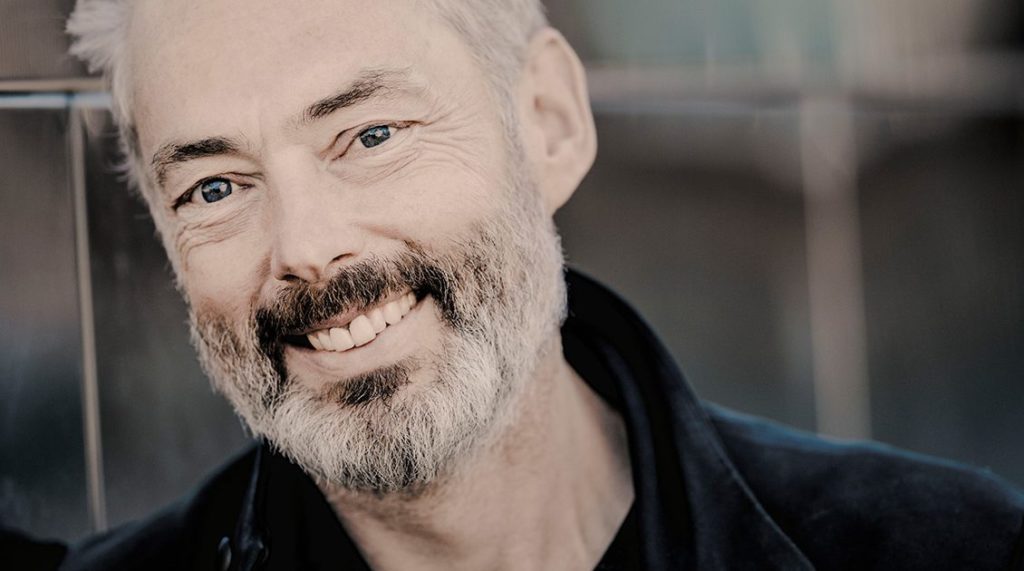
Mark Padmore and Ana Manastireanu, Leeds Lieder Festival, Howard Assembly Room, Leeds, June 9
LEEDS’S incomparable festival of song has got off to a powerful start. Mark Padmore was in determined voice, adjusting his flexible tenor from a first half of Schumann lieder to English song after the interval.
Ana Manastireanu’s piano was equally alert to the possibilities thrown up by some alluring poetry. It made for an engrossing evening.
Chamisso’s transcriptions from Hans Christian Andersen, four of which Schumann set in his Op 40, are not as widely known as they deserve. They distil the dark essence of salutary tales – and prove a strong inspiration to the composer.
For the tragic death by firing-squad in Der Soldat, Padmore adopted a baritonal timbre; it was to appear often later. In Der Spielmann, where the fiddler looks on at his sweetheart’s wedding, his resonance turned positively operatic. Like his pianist, he captured the menace in these songs.
With Schumann’s Op 39 Liederkreis we were on more familiar territory, 12 settings of Joseph Eichendorff. Both cycles here date from 1840, his great year of song when confronted by the intransigence of his prospective father-in-law (the poet was going through a similarly love-lorn phase).
Yearning is at their heart. Waldesgespräch (Forest Conversation) was impeccable: Padmore’s contrasted voices for narrator and witch matched with tight ensemble in its abrupt chords made it chilling.
The toughest song of them all, at least for the singer, is Mondnacht; here the impossible rising scale was slightly fudged and a later crescendo curtailed too soon. But Padmore immediately compensated with a forthright Schöne Fremde, which Manastireanu matched, and a beautifully legato largo line in Auf einer Burg.
He resorted to a telling whisper in Zwielicht (Twilight), which underlined Schumann’s uncanny harmonies. The duo finished with quivering excitement in a fast-paced Frühlingsnacht (Spring Night).
Some of the postludes began to rallentando a touch too early, but in general the piano added plenty of colour, so emphasising that Schumann conceived these songs as duets.
Nine English composers contributed the dozen songs of the second half (I include the encore). Three by Rebecca Clarke stood out. As an evocation of the supernatural, her setting of Masefield’s The Seal Man was hard to beat, as Padmore alternated smoothly between recitative and lyricism using a wide variety of resonance.
Blake’s The Tiger showed Clarke at her most inventive, properly creepy at start and finish. Even her harmonisation of Down By The Salley Gardens (Yeats), sung as an encore, sounded at least as effective as Britten’s.
Padmore’s theatrical aptitude and textual awareness, never overstated, lay behind the success of all these songs. Tansy Davies’s repeating piano motif in Destroying Beauty (Clare) and Sally Beamish’s clever use of onomatopoeia in Hoopoe made their mark.
Holst’s bleak Betelgeuse (Wolfe) was hypnotic and the gently rolling accompaniment to Vaughan Williams’s Nocturne (Whitman) conjured whispers of eternity.
In the hands of this duo, Finzi’s Channel Firing (Hardy) became an angry lament, interrupted only by Parson Thirdly’s staccato mood-change. We were persuaded this must surely be Finzi’s greatest song.
There was Bridge, Britten and Tippett too. Yes, these were mainly slow-moving songs slanted to the darker side of human existence, so not offering huge variety. On the other hand, the duo played to the discrimination of this audience: they could have offered no greater compliment.
Review by Martin Dreyer
Leeds Lieder Festival continues until June 17. www.leedslieder.org.uk
